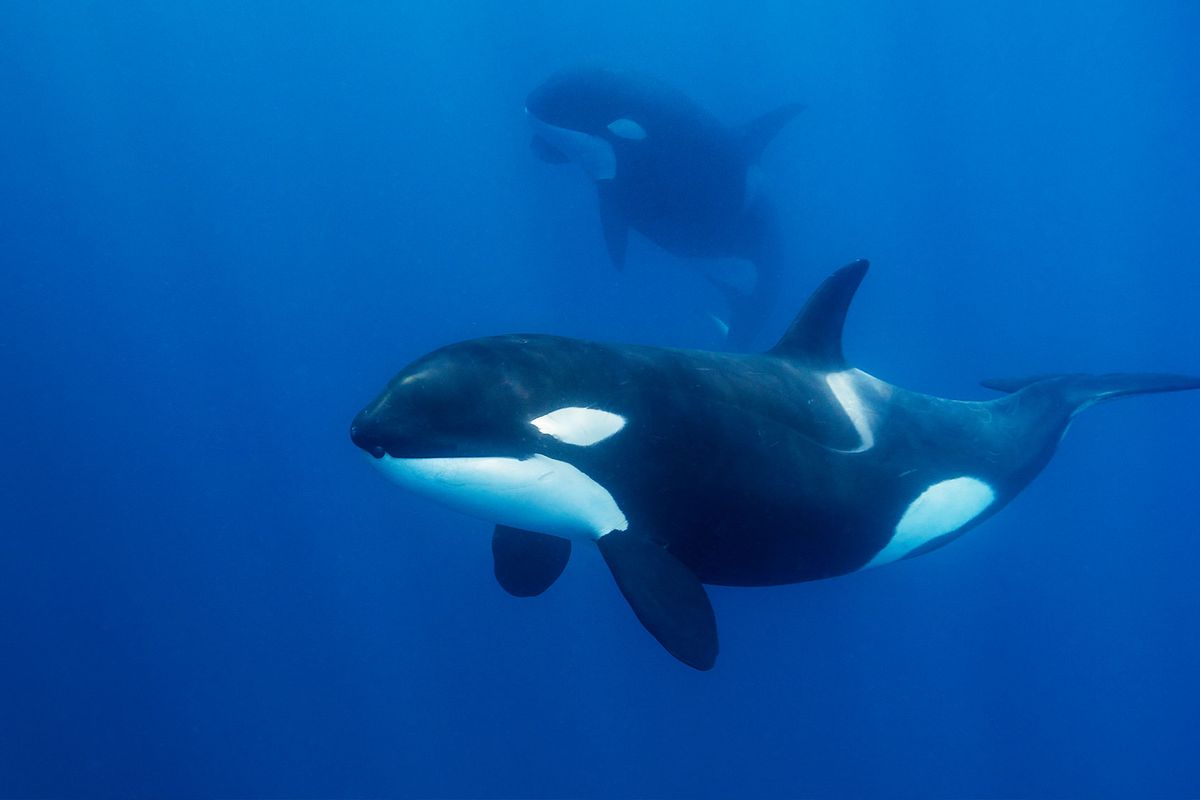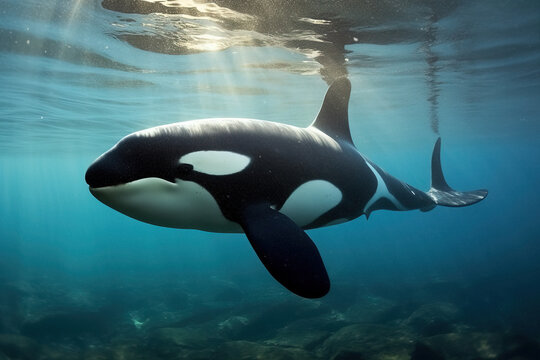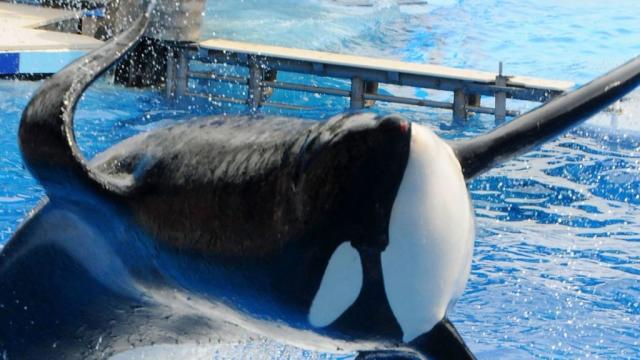
Orcas, also known as killer whales, reign as the majestic giants of the ocean. With their distinct black and white markings and powerful presence, these marine mammals are not only awe-inspiring but also hold a unique place in marine ecosystems.

Orcas are the largest members of the dolphin family, and their physical characteristics make them easily recognizable. Sporting a sleek black back and striking white underbelly, they are known for their distinct coloration, which varies among individuals. Orcas exhibit a remarkable intelligence, and their large size, reaching up to 32 feet in length, makes them apex predators in their marine environment.
Highly social animals, orcas live in complex family groups called pods. Each pod has a unique set of vocalizations, contributing to the intricate communication system among individuals. These vocalizations, including clicks, whistles, and pulsed calls, play a crucial role in hunting, navigation, and maintaining social bonds within the pod.
Orcas are opportunistic predators with a diverse diet, feeding on fish, squid, and marine mammals, including seals and even larger whales. Some populations have developed unique hunting strategies, such as beaching themselves to catch seals or creating waves to knock seals off ice floes. These intelligent creatures showcase cultural learning, passing down specific hunting techniques from one generation to the next.

Orcas inhabit oceans worldwide, from the Arctic to Antarctic regions, demonstrating their adaptability to various climates. Some populations are known for their long-distance migrations, covering thousands of miles in search of prey. These migrations highlight the incredible navigational skills possessed by these marine giants.
While orcas are not considered endangered as a species, certain populations face significant threats due to pollution, depletion of prey, and habitat degradation. Human activities, such as vessel traffic and noise pollution, also impact these animals, prompting conservation efforts to protect and preserve their natural habitats.

Orcas hold cultural significance in many indigenous communities, often portrayed as powerful symbols and respected guardians of the sea. Their intelligence, complex social structures, and captivating behaviors have sparked fascination and admiration across cultures.
As the majestic giants of the ocean, orcas continue to captivate researchers, wildlife enthusiasts, and the general public alike. Their intelligence, social dynamics, and unique adaptations make them not only powerful predators but also key contributors to the intricate web of marine life. Conservation efforts are crucial to ensuring the survival and well-being of these magnificent creatures, ensuring that future generations can continue to marvel at the beauty and complexity of the orca.



